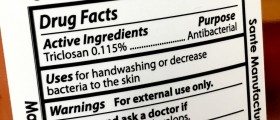
What is MRSA?
MRSA is an abbreviation standing for methicillin-resistant Staphylococcus aureus. This infection is particularly difficult because it is resistant to the antibiotics that are normally used to treat staph infections.
MRSA is commonly seen in people who spend a lot of time in hospitals, health care centers, nursing homes, dialysis centers and such. It also associated with surgical procedures, intravenous therapy, catheters, artificial joints and tubing and similar.
Staphylococcus aureus or S. aureus is a bacterium present everywhere of the world. In fact, it is estimated that it colonizes from 10 to 14 percent of the entire world’s population. Methicillin was always the medication of choice for staph infections. However, in 1959 S. aureus bacteria resistant to that medication were discovered. It was then the term MRSA was coined. In addition, MRSA seems to be resistant to other types of antibiotics as well. For this reason, many people call it a “superbug”.
It is believed that MRSA is antibiotic-resistant because of plasmids, genetic elements that are transferred from one microorganism to another. The main types of MRSA are HA-MRSA or hospital-acquired MRSA and CA-MRSA or community-acquired MRSA. HA-MRSA is more resistant than CA-MRSA.
MRSA can be transmitted through direct and indirect contact. Direct contact involves skin and body fluids and indirect means handling other people’s personal items, such as towels and utensils, as well as common objects like telephones, door knobs and such. In addition, there are so-called MRSA carriers, people who have staph bacteria in their body but do not show any symptoms. Carriers can transmit the disease to others without being sick themselves.
Antibiotic therapy for MRSA
Given the nature of MRSA, it is more than obvious that this disease can be extremely difficult to treat. Antibiotics are the number one choice in treatment of any bacterial infection, and MRSA is not exception, only the treatment can be quite complicated. It is possible to establish appropriate antibiotic treatment for MRSA but it is necessary to determine, in the laboratory, the specific type of the resistance of the bacteria. If microbiological tests, performed using Kirby-Bauer discs on agar plates, show that an antibiotic can effectively fight the infection, that specific antibiotic will be used in treatment of MRSA. There is no general rule about which antibiotics will be effective, hence it is necessary to do laboratory tests.
When the tests are done and an effective antibiotic is identified, it is extremely important to follow through the therapy and to take all the antibiotics prescribed. Stopping taking antibiotics before due time can be dangerous since the disease may come back quickly, this time even more resistant.

















Your thoughts on this
Loading...